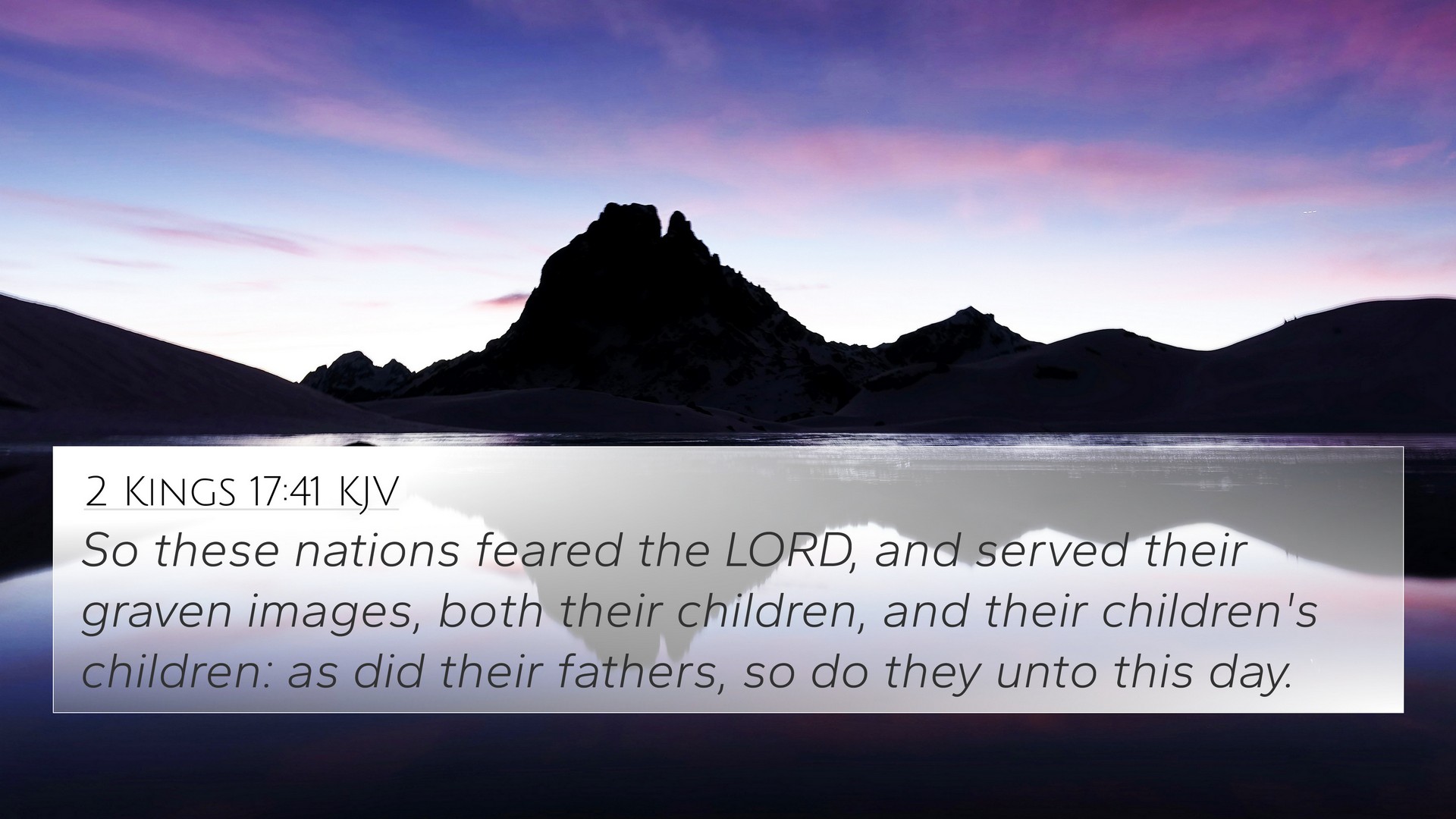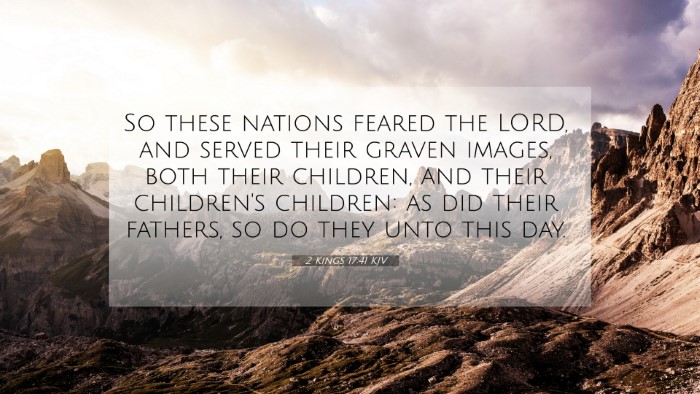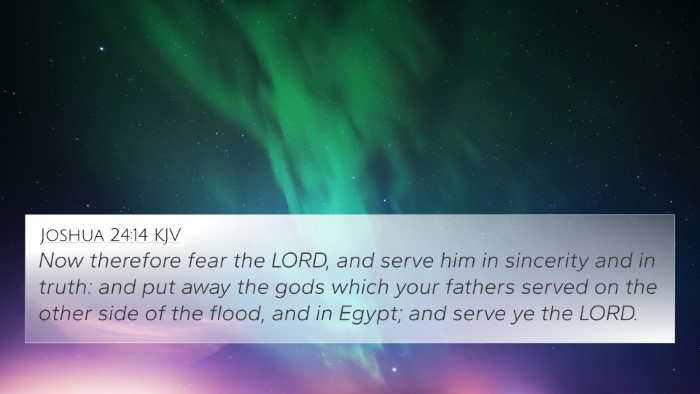Understanding 2 Kings 17:41
Bible Verse: 2 Kings 17:41 - "So these nations feared the Lord, and served their graven images, both their children, and their children's children: as did their fathers, so do they unto this day."
Summary of Biblical Context
This verse occurs within a narrative discussing the Assyrian exile of Israel and the subsequent repopulation of the land with foreign nations. These nations adopted some aspects of worshipping Yahweh while maintaining their idolatrous practices. This duality in worship highlights the struggles of integrating faith and tradition.
Thematic Insights
The verse delves into the themes of fear of the Lord and idolatry, revealing a significant relational tension within the context of worship. Various commentators provide important insights:
-
Matthew Henry: He elaborates on how these nations tried to appease God while still clinging to their ancestral idols. Their fear of the Lord was not genuine but superficial, as their practices reflected divided loyalties.
-
Albert Barnes: Barnes notes that the combination of fear and idolatry illustrates human tendency to mix reverence for God with secular practices. This synthesis ultimately leads to diluted faith and misinterpretation of true worship.
-
Adam Clarke: Clarke emphasizes the sorrowful legacy of this duality. He argues that the elders and their descendants continue in these ways, perpetuating traditions that misrepresent the worship of Yahweh, thereby losing the essence of divine service.
Bible Verse Cross-References
This verse can be connected to several other scriptures that further illuminate its meaning:
- Exodus 20:3-5 - The command against idolatry directly relates to the practices mentioned in 2 Kings 17:41.
- Psalm 106:36-39 - This scripture recounts Israel's history of idolatry and the consequences of such actions.
- 1 Kings 18:21 - Elijah's challenge to the people about serving Yahweh versus Baal echoes the mixed worship described in the verse.
- Isaiah 29:13 - God's complaint about people honoring Him with their lips while their hearts are far away resonates with the theme of superficial reverence.
- Romans 1:25 - This New Testament reflection on exchanging the truth of God for lies parallels the idolatry central to 2 Kings 17:41.
- Matthew 6:24 - Jesus' teaching about serving two masters underlines the impossibility of true allegiance when divided loyalties exist.
- Colossians 3:5 - Paul’s call to eliminate idolatry also connects with the actions of the nations discussed in our verse.
- 2 Chronicles 33:7 - The persistence of idol worship in the land, similar to themes in 2 Kings, illustrates the struggle against false gods.
- 1 Timothy 6:10 - The love of money as an idol demonstrates a modern parallel to the ancient practices of reliance on material images.
- Revelation 21:8 - The fate of idolaters in the final judgment warns against the consequences of unrepented idolatry.
Connections and Insights
This verse serves as a reminder of the connections between Bible verses and highlights the importance of understanding biblical history and its teachings on idolatry. Analyzing 2 Kings 17:41 alongside these references helps us grasp the consequences of mixing faith with falsehood.
Furthermore, we can explore how to utilize tools for Bible cross-referencing, such as Bible concordances or cross-reference guides, to deepen our understanding of such verses. Learning how to find cross-references in the Bible enriches our study, allowing us to see overarching themes throughout scripture.
Conclusion
In conclusion, 2 Kings 17:41 powerfully illustrates the ongoing struggle with idolatry among the nations that once inhabited Israel. By cross-referencing this verse with others, we unveil a network of scriptural truths that warn against the perils of dual worship. Understanding this poignant message helps inform our contemporary faith practices and urges us to dedicate our worship solely to the Lord.
Call to Study
As you continue your journey in the Scriptures, consider how these Bible verses that relate to each other form a cohesive narrative that speaks to our own lives today. Engage in cross-referencing Bible study methods to discover the richness of God’s Word.









